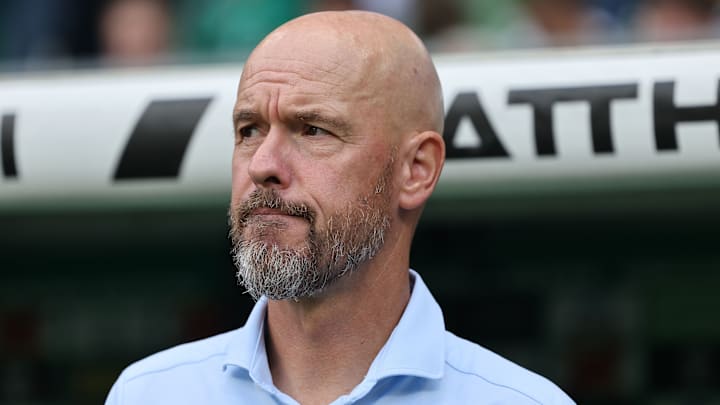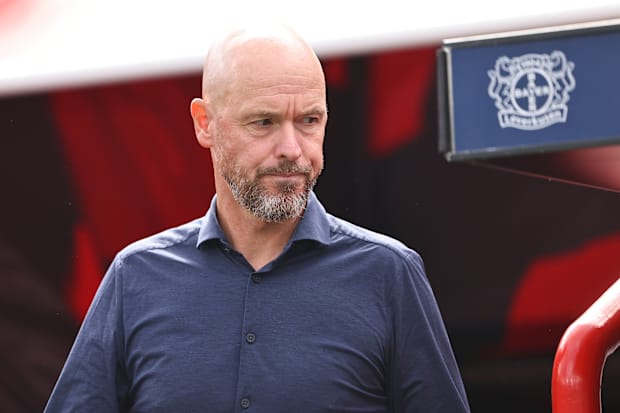Erik ten Hag's Dramatic Downfall: Inside the Shocking Collapse That Led to His Brutal Bayer Leverkusen Dismissal

When Erik ten Hag was announced as Bayer Leverkusen's new head coach on May 26, he described the opportunity to take over the Bundesliga second-place finishers as "an appealing opportunity". However, things would deteriorate rapidly for the ex-Manchester United boss.
On September 1, merely two matches into the fresh Bundesliga campaign, Ten Hag was abruptly dismissed. No manager in German top-flight history had previously survived just 180 minutes of competitive action, but as Leverkusen's surprisingly transparent senior leadership later revealed, concerns had emerged during pre-season preparations.
An inability to establish rapport with his new associates, including superiors, subordinates, and squad members alike, is cited as the primary reason for Ten Hag's embarrassing departure according to SPORT BILD. The comprehensive analysis not only details how this confidence deteriorated as rapidly as it developed, but also suggested that Ten Hag's dismissal was as costly as it was unprecedented.
Considering his wages and severance package, the Netherlands native is believed to have cost Leverkusen €6 million (£5.2 million, $7 million) for eight weeks of employment.
Excluded From Key Decisions

In his pointed departure statement, Ten Hag declared that his partnership with club leadership "was never built on genuine trust", as evidenced by transfer dealings that allegedly occurred without his knowledge.
Possibly cautious about repeating Manchester United's errors—where substantial amounts were invested in players specifically endorsed by the Dutch manager only to see them underperform—Leverkusen swiftly excluded Ten Hag from the club's "core group".
Director of football Simon Rolfes and chief executive Fernando Carro had previously established an effective triumvirate with former coach Xabi Alonso. The current Real Madrid manager maintained stronger ties to the German club than Ten Hag, who learned that Lucas Vázquez would join Leverkusen before his replacement at the BayArena, speaking to the Spanish defender only two days after the transfer was finalized.
Ten Hag's continuous public requests for reinforcements and his strangely rigid opposition to Granit Xhaka's departure—which occurred after the club had already confirmed his transfer to Sunderland—ultimately persuaded Rolfes and Carro to proceed without their manager's involvement.
For a coach who previously ensured emails were distributed to all United players specifying sock colors for each pre-season day, being excluded from recruitment decisions must have been particularly frustrating.
Breakdown in Internal Relations

Based on club insiders quoted by SPORT BILD, Ten Hag "alienated every department, committee, and player." The confrontational Dutch manager allegedly "failed to build relationships with anyone."
That Ten Hag's interpersonal abilities have been questioned may not come as a shock. This is, ultimately, a coach who previously reflected that making difficult choices is "what separates a manager from an ordinary person."
It was passivity rather than poor judgment that appeared to create such early problems in Leverkusen.
Strategic Bewilderment

Before the season's opening Bundesliga fixture, which became a lackluster 2–1 loss to relegation-threatened Hoffenheim, Ten Hag confused his new squad by choosing not to deliver any pre-game instructions.
There seemed to be widespread confusion regarding player responsibilities on the field during Ten Hag's short tenure. Following the surrender of a 3–1 advantage against Werder Bremen the previous weekend, Leverkusen skipper Robert Andrich expressed frustration: "We need to function as a unit right away, or we won't secure victories."
"Nobody understood their role," was the criticism directed at Ten Hag by SPORT BILD, as players appeared confused by his fixation on push-up exercises during practice. Physical conditioning was a hallmark of his Manchester United period; following a second-game defeat to Brentford, Ten Hag required his players to train on their rest day to compensate for the running distance gap between the teams.
That methodology eventually produced improved performances at Old Trafford, but Ten Hag departed Leverkusen too quickly to determine whether his approach would succeed.
"In football," the Dutch manager once observed, "it's survival of the fittest." He has faced more setbacks than successes in his previous two appointments.
